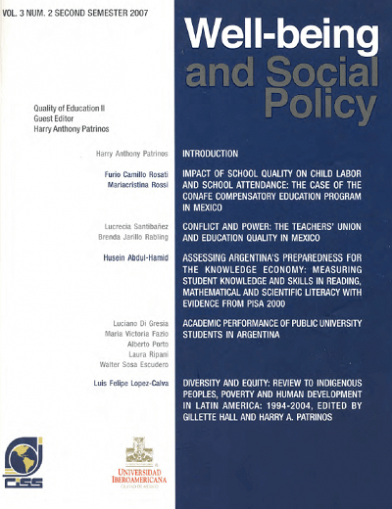
Designing educational policies under limited budgets requires a thorough analysis of the impact of alternative factors on student performance. This work aims at providing an analysis of the relationship between university performance and its explanatory factors. The analysis Will focus on the Argentinean case, using the 1994 Census of Students in National Universities, which includes data on all students enrolled in public universities in Argentina. The theoretical framework chosen for the empirical analysis is based on a production function, where education is seen as a process through which a set of inputs (student skills and characteristics and environment) is transformed into an educational product valued by individuals and society. Methodological limitations are mainly associated with the heterogeneity in the data. Different strategies are used to focusing on small groups and leading to accuracy in the results. It is important to underline that this paper makes a number of contributions, both thematically and methodologically. As previously mentioned, this study contributes to the discussion on the factors that impact educational performance in university students in Argentina, a relevant issue in public policy decision making. Possibly one of the most significant contributions of this study is to establish a clear methodological foundation that can be used as a starting point for more sophisticated studies and reproduced in different countries or
periods.
